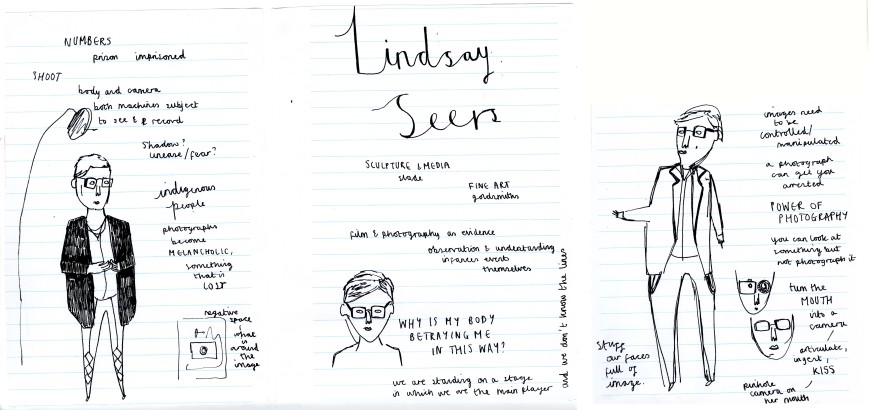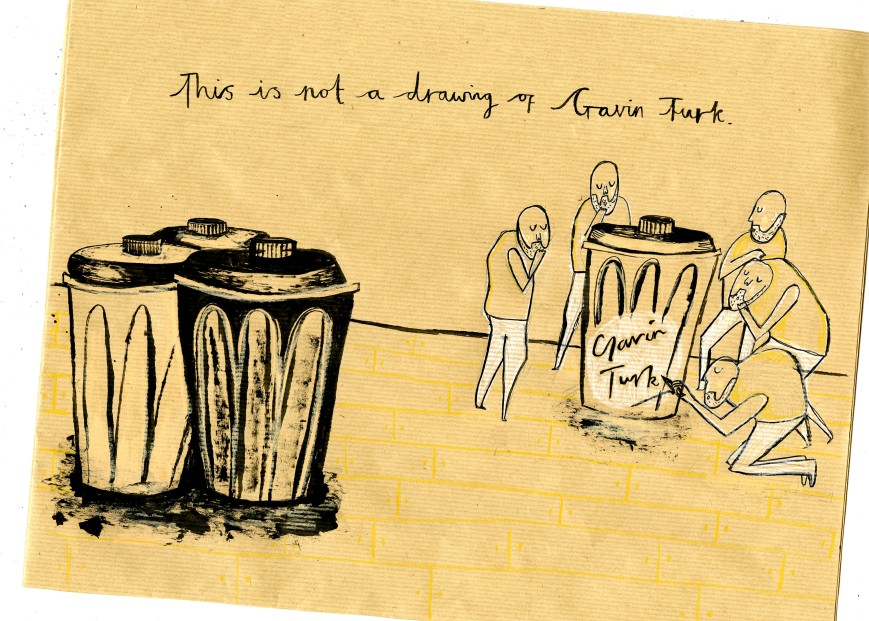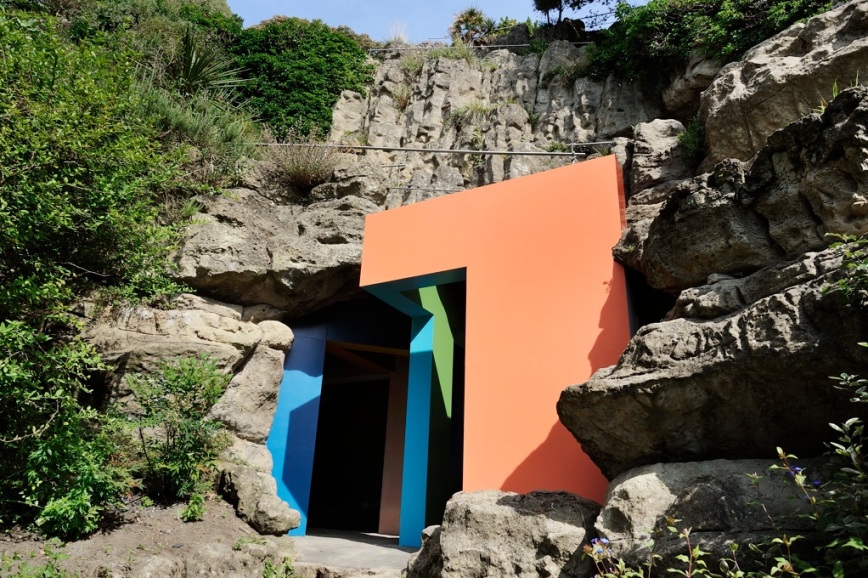Following his lecture to a packed house the night before, Simon Fujiwara, Falmouth University’s Visiting Professor of Art, led a seminar of a group of second and third year BA(Hons) Fine Art students. Second year students Jo Clarkson and Rachael Coward share their responses to that session.

Simon Fujiwara by Anna Partington (Cartel Photos)
Jo Clarkson, Student, 2nd year BA(Hons) Fine Art
In the past I have thoroughly enjoyed three of Simon Fujiwara’s talks at Falmouth and also visited his solo exhibition at St Ives so it was a real pleasure to meet him in person.
It was a unique experience. Kinda like a cross between an art tutorial, careers guidance and group counselling session – guided by a captivating, yet pointed and penetrating, storyteller, highly skilled in investigating and revealing! All in 2 hours! It was quite intense.
I left feeling I am my work, I must choose my truth/fiction carefully, find my purpose, investigate further, filter, edit, refine, play and enjoy!
From his comments in his previous talks I also reckon Simon’s Mum would be a very interesting and fun person to meet!
Rachael Coward, Student, 2nd year BA(Hons) Fine Art
The discussion began with the physical means of artistic process, and what defines an idea as worthy of further artistic endeavour…
Does the world need this work? And do the processes involved in making the work affect the balance of the world?
We ourselves as artists are starting points. We are flawed in that we cannot examine every aspect of our lives; it would become a full time occupation in itself which could easily become obsolete as technological advances outdate our work. We are, in effect, vessels; information passes through us, and it is up to us to filter and process it; ultimately finding a way to operate in the information-rich world we now inhabit. From this we can conclude that the notion of ‘the self’ becomes an empty idea, as we are in fact agents for work, engaging and encouraging ideas that come from outside sources.
However the interplay of ‘inner’ and ‘outer’ affects how our work is received; and it begins with the claim of being an ‘artist’. Without this self-proclamation, the outside world would not react to us, and it is only because of that statement that the outside world acknowledges what we make as ‘art’.
But does this label of ‘artist’ need to be visible? Do we identify as artists through our appearance? In some circumstances the ‘look’ of a person can occupy a space as much as a piece of work; but is this the point, or should we as artists remain invisible? This idea of uniforms or costuming revolves around the idea of ‘belonging’. We as humans understand the safety behind a unified group of individuals, yet we are ‘lost’ in our own sense of visual identity. Outer appearances don’t directly link to beliefs or attitudes anymore; therefore anyone can look like an ‘artist’. But when we consider something ‘lost’, we must also consider them when they are ‘found’ – from this deliberation of two passive states, the conclusion was drawn that even if we are lost, it isn’t a bad thing. Quite often when we are lost is when the most exciting or unexpected things happen.
An artist is a factory. Part of the whole process of making art is coming to conclusions within ourselves, and using means of communication to present these conclusions to an audience.
We can play with the world and also take part in it.



























